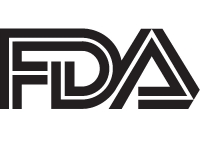Business
WORLD AIDS DAY - FOCUS ON FOOD SAFETY
U.S. FOOD AND DRUG ADMINISTRATION

(Source: U.S. Food and Drug Administration (FDA))
December 1, 2015, is World AIDS Day. The U.S. Food and Drug Administration (FDA) reminds people with HIV/AIDS (and those preparing food for them) about the importance of safe food handling in preventing foodborne illness.
Learn about safe selection and preparation of foods for people with HIV/AIDS in the free booklet Food Safety for People with HIV/AIDS : Download at http://www.fda.gov/Food/FoodborneIllnessContaminants/PeopleAtRisk/ucm312669.htm
Learn about safe selection and preparation of foods for people with HIV/AIDS in the free booklet Food Safety for People with HIV/AIDS : Download at http://www.fda.gov/Food/FoodborneIllnessContaminants/PeopleAtRisk/ucm312669.htm
Practicing food safety is critical because the Human Immunodeficiency Virus (HIV) that causes Acquired Immunodeficiency Syndrome (AIDS) can damage, or destroy the body's immune system, making those living with this disease more susceptible to foodborne illness (often called 'food poisoning'). If a person with HIV/AIDS contracts a foodborne illness, he or she is also more likely to have a lengthier illness, undergo hospitalization, or even die. This increased risk underscores the critical role safe food handling plays in managing HIV/AIDS.
Some foods are more risky for people with HIV/AIDS because they are more likely to contain harmful bacteria or viruses. In general, these foods fall into two categories :
- Uncooked fresh fruits and vegetables.
- Certain animal products, such as unpasteurized (raw) milk; soft cheeses made with raw milk; and raw or undercooked eggs, raw meat, raw poultry, raw fish, raw shellfish and their juices; luncheon meats and deli-type salads (without added preservatives) prepared on site in a deli-type establishment.
Anyone who has HIV/AIDS or who prepares food for people with HIV/AIDS should also follow these steps :
- Uncooked fresh fruits and vegetables.
- Certain animal products, such as unpasteurized (raw) milk; soft cheeses made with raw milk; and raw or undercooked eggs, raw meat, raw poultry, raw fish, raw shellfish and their juices; luncheon meats and deli-type salads (without added preservatives) prepared on site in a deli-type establishment.
Anyone who has HIV/AIDS or who prepares food for people with HIV/AIDS should also follow these steps :
- CLEAN: Wash hands and surfaces often. Bacteria can be spread throughout the kitchen and get onto hands, cutting boards, utensils, counter tops, and food.
- SEPARATE: Keep raw meat, poultry, eggs, and seafood and their juices away from ready-to-eat foods.
- COOK to the right temperatures. Use a food thermometer to ensure meat, poultry, seafood, and egg products are cooked to a safe minimum internal temperature to destroy any harmful bacteria. Refer to the chart at: http://www.fda.gov/downloads/Food/ResourcesForYou/Consumers/UCM462491.pdf
- SEPARATE: Keep raw meat, poultry, eggs, and seafood and their juices away from ready-to-eat foods.
- COOK to the right temperatures. Use a food thermometer to ensure meat, poultry, seafood, and egg products are cooked to a safe minimum internal temperature to destroy any harmful bacteria. Refer to the chart at: http://www.fda.gov/downloads/Food/ResourcesForYou/Consumers/UCM462491.pdf
- CHILL foods promptly. Cold temperatures slow the growth of harmful bacteria. Use an appliance thermometer to be sure the refrigerator temperature is 40 degrees F or below and the freezer temperature is 0 degrees F or below.
Consuming dangerous foodborne bacteria will usually cause illness within 1 to 3 days of eating the contaminated food. However, sickness can also occur within 20 minutes or up to 6 weeks later. Symptoms of foodborne illness include: vomiting, diarrhea, abdominal pain, and flu-like symptoms (such as fever, headache, and body ache).
Source : Food and Drug Administration (FDA)
Ruby BIRD
http://www.portfolio.uspa24.com/
Yasmina BEDDOU
http://www.yasmina-beddou.uspa24.com/
Consuming dangerous foodborne bacteria will usually cause illness within 1 to 3 days of eating the contaminated food. However, sickness can also occur within 20 minutes or up to 6 weeks later. Symptoms of foodborne illness include: vomiting, diarrhea, abdominal pain, and flu-like symptoms (such as fever, headache, and body ache).
Source : Food and Drug Administration (FDA)
Ruby BIRD
http://www.portfolio.uspa24.com/
Yasmina BEDDOU
http://www.yasmina-beddou.uspa24.com/
Ruby Bird Yasmina Beddou Safety Us Food And Drug Administration Hiv Aids World Aids Day People Important Safe Handling Preventing Foodborne Illness
Liability for this article lies with the author, who also holds the copyright. Editorial content from USPA may be quoted on other websites as long as the quote comprises no more than 5% of the entire text, is marked as such and the source is named (via hyperlink).






